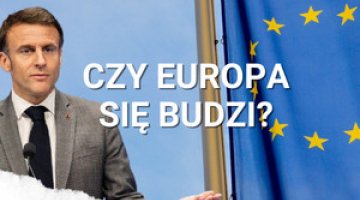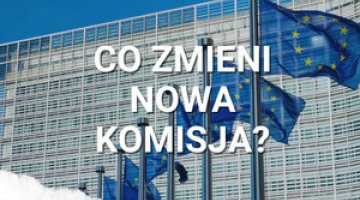A gas pipeline ‘above the law’? The EU Council’s legal service gives its opinion on Nord Stream 2
On 27 September, the legal service of the Council of the European Union issued a legal opinion on the European Commission’s proposal to the EU Council for permission to start negotiations with the Russian Federation on the issue of adopting a special legal framework for the Nord Stream 2 gas pipeline. The content of the 25-page opinion was revealed in the media (Politico Europe) a few days later. The document is part of the internal legal procedure within the EU Council’s framework, and it discussed whether the proposal put forward by the EC is in accordance with EU law. It refers to the question of whether it is legitimate to apply EU law to the Nord Stream 2 project, the potential conflict between EU law and other legal regimes, the division of competences between the EU bodies and the member states in the field of international agreements, and also offers an interpretation of the principles of the EU’s energy security.
Previously, in January 2016, a legal opinion on the Nord Stream 2 project had been presented by the EC’s legal service. This report highlighted numerous concerns regarding the possible compliance of the new infrastructure’s operation with the rules of European law (including, in particular, the so-called Third Energy Package), and indicated three possible paths for resolving any legal conflicts: 1) applying EU law to the entire maritime section of the pipeline; 2) the application in parallel (according to the geographical situation) of the rules of EU law, the EU member states and Russia; 3) negotiating a special legal regime for Nord Stream 2.
The opinion of the EU Council’s legal service was intended to dispel the uncertainties raised by the EC regarding the application of EU law to infrastructure projects such as Nord Stream 2. The Commission highlighted the occurrence in this situation of conflicts between the following standards: those of the EU, the individual member states and Russia (with regard to the part of the infrastructure that runs through territory within the jurisdiction of the Russian Federation). The EC press release on the request to the Council of the European Union for a mandate to negotiate the key principles for the operation of the Nord Stream 2 gas pipeline project with the Russian Federationwas posted on 9 June, and the formal proposal was made to the EU Council on 12 June this year.
Commentary:
- The opinion by the EU Council’s legal service presents an interpretation of EU law which is biased in a way that clearly favours the construction of the Nord Stream 2 gas pipeline. It meets the expectations of those parties which are most interested in implementing the project; in particular, it is consistent with the position of Germany and Russia. Permission to proceed would mean that a number of restrictions arising from the so-called Third Energy Package, such as the principle of third-party access, the principle of unbundling (separating the ownership of the infrastructure from the transmission and distribution of gas), certification requirements and setting transmission tariffs, would not apply automatically to the Nord Stream 2 gas pipeline. This would allow Gazprom and Western European companies to set the conditions for operating the planned pipeline in a free and unrestricted manner.
- Contrary to the EC’s initial assessments, the legal service of the EU Council states that there are no clashes of standards or legal vacuums in relation to the Nord Stream 2 project. In its assessment, the most appropriate legal system, in the light of which the status and rules for the operation of the maritime infrastructure should be evaluated, are the regulations of the international Law of the Sea, defining the jurisdiction of the coastal states in terms of various types of marine areas (the Nord Stream 2 pipeline is planned to run through Russian territorial waters, the exclusive economic zones of Sweden and Finland, and the territorial waters of Denmark and Germany). Moreover, the authors of the legal opinion state that the rules of the Third Energy Package, and in particular the EU Gas Directive, do not apply to the proposed gas pipeline. They justify their position by stating that in their assessment, Nord Stream 2 does not meet the criteria provided for in the definitions which determine which types of infrastructure the EU rules should apply to, as:
- it is not a so-called upstream pipeline network (in accordance with article 2, paragraph 2 of the Gas Directive, this refers to any pipeline or network of pipelines operated and/or constructed as part of an oil or gas production project, or used to convey natural gas from one or more such projects to a processing plant or terminal or final coastal landing terminal);
- nor is it an interconnector, as defined by article 2, paragraph 17 of the Gas Directive as a transmission line which crosses or spans a border between member states for the sole purpose of connecting the national transmission systems of those member states.
In addition, the authors of the opinion state that a conflict of legal standards would indeed exist if an attempt was made to extend the scope of EU law into the part of the maritime infrastructure that ran through the territory of Russia (a conflict between EU law and Russian law).
- The opinion emphasises that the possible negotiations on a special legal regime for Nord Stream 2 would only cover the rules for its operation, and not issues of construction or opening. As a consequence, according to the opinion’s authors, both the pipeline’s construction and its opening are compatible with EU law. The EC does not currently have the powers which would allow it to immediately block the construction of infrastructure projects like Nord Stream 2. However, the adoption as binding of an interpretation that the new gas pipeline’s construction and handover for use are clearly compatible with EU law would make it harder for the project’s opponents to find other paths to block its implementation.
- In its opinion the EU Council’s legal service has defined the security of gas supplies in a way that conflicts with the predominant interpretation. According to the Council’s lawyers, the construction of Nord Stream 2 will increase the security of gas supply to the EU as it will create an alternative supply route, one which in addition will not be affected by any interruption in supply between the exporting country (Russia) and the transit country (Ukraine). In addition, according to the opinion’s authors, the construction of this pipeline will not increase the EU’s dependency on imports from Gazprom, but will only increase the EU’s energy security, thanks to the construction of direct gas connections to the supplier. Such an approach to the question of energy security and the security of gas supply runs counter to the hierarchy of priorities set out in the EU’s strategic documents (including those concerning the Energy Union) and the EU’s energy law (including in the Security of Gas Supply Regulation). In these documents, energy security is identified above all with the diversification of sources of supply and the development of interconnections between the member states.
- The opinion’s authors criticise the material scope of the proposal for a negotiating mandate for the EC, indicating that its content goes beyond what is necessary to achieve the objectives of the energy policy as defined under the EU treaties or included in the concept of the energy union. As examples, they refer to an attempt to extend the scope of the EU’s regulation to third states (the section of the Nord Stream 2 gas pipeline which would be subject to Russian jurisdiction), as well as the imposition of rules limiting Nord Stream 2’s operation as a kind of restriction on the freedom of member states to choose the sources and routes of gas supplies.
- A significant part of the opinion is devoted to considerations concerning the division of competences between the EU and the member states in the context of the conclusion of intergovernmental agreements between the EU and third countries. The opinion’s authors state that the conclusion of the agreement which the EC has requested does not fall within the exclusive competence of the EU, but rather within the framework of the so-called shared competences between the EU and the member states. The adoption of such an interpretation would mean that the influence of the member states, in particular those with significant power to exert political influence on the decision-making processes in the EU, could prove crucial for the final shape of whichever solutions are adopted; it could also, if there is no interest in adopting any of the regulations, lead to the paralysis of the negotiation process.
- In drawing upon these arguments, the opinion’s authors are critically assessing the need for the EC to conduct negotiations with Russia on Nord Stream 2, indicating that the real purpose of such talks would be not so much to find solutions to the legal problems as to achieve a political compromise on the principles of operating the pipeline (the document directly states that these negotiations stem from a political, not a legal necessity). This in turn, in the light of the opinion, would set a bad precedent by creating rules that would not have a general application and would be created for individual cases (an undesirable practice from the point of view of the consistency of EU law).
- Whereas the demand that ‘casuistic norms’ not be created, with regard to the consistency of the EU’s legal system, is understandable, there remains the problem of the proposal to abandon negotiations between the EC and Russia while ceasing to apply EU law to infrastructure being built on the territory of the EU. Applying such an interpretation would restrict the exercise of EU law in a situation where its application is beyond dispute (in accordance with the accepted interpretation of the standards of European law in force in internal waters and the territorial seas of coastal states). In the same way, a refusal to apply the rules of the Third Energy Package to those sections of Nord Stream 2 which would run through the territorial waters of Denmark and Germany would favour the supporters of the project, in particular Russia.
- The opinion of the EU Council’s legal service is in line with the position of the government of Germany regarding Nord Stream 2. Since the beginning Berlin has wanted the European Commission not to get involved in the project. During a visit to Russia in October 2015, the then vice-chancellor and economy minister Sigmar Gabriel assured the Russian President Vladimir Putin of his support for the construction of Nord Stream 2, and declared that he would try to limit the EU’s influence on the implementation of the project, and that the ministry of the economy, to which the energy market regulator (Bundesnetzagentur) is subordinate, would work to defend such an interpretation. In March this year, the Bundesnetzagentur published its position on the construction of Nord Stream 2, which is in accordance with the opinion of the government. In the opinion of the agency, the off-shore section of Nord Stream 2, together with its onshore part up to the point of entry into the German gas network, would not be subject to the provisions of the Third Energy Package. According to Germany the EC has applied separate regulations for offshore pipelines for years, as in the cases of Nord Stream 1, Green Stream (Libya-Italy) and MEDGAZ (Algeria-Spain). Applying the provisions of the Third Energy Package to Nord Stream 2 would be discriminatory, in the view of the German regulator. Sigmar Gabriel has consistently promoted the construction of this gas pipeline, also in his position as Foreign Minister, since January 2017. In June, during his participation in the Economic Forum in St. Petersburg, Gabriel had an unofficial meeting with Vladimir Putin and the former Chancellor of Germany, Gerhard Schröder; the media have speculated that the construction of Nord Stream 2 was also discussed on that occasion.
- The opinion expressed by the EU Council’s legal service is not binding; however, it is very likely that it will be taken into consideration during the development of a final decision by its members, and in particular, it will be used as an important argument by opponents of the negotiations (principally Germany). At the same time, considering that a decision on the mandate will be taken by a qualified majority of the EU Council, it will be harder for supporters of the negotiations – according to statements by Maroš Šefčovič in June, the start of talks is supported by 13 of 28 of the EU member states (most likely referring mainly to Central European countries) – to drum up support for the talks themselves, not to mention obtaining a mandate, which would work to cover the new infrastructure with a wide range of restrictions derived from EU law.
- The original idea, of the EC negotiating a special legal regime for Nord Stream 2 with Russia, entailed serious political risks associated with the possibility of such a compromise being adopted, as this could have negative consequences for the coherence of the EU’s legal system; it is unlikely that during such talks Russia would agree to a wide range of EU rules being applied to the new pipeline. Moreover, Moscow could exploit the creation of special rules for cooperation with regard to Nord Stream 2 as a precedent to justify making more demands concerning the principles of Russian/EU energy cooperation, and consequently further exclusions or limits to the application of EU law. The demand to start negotiations would also represent a concession by the EC regarding the project; in the opinion prepared in January 2016, the EC’s legal services pointed to a number of concerns regarding Nord Stream 2 and the compatibility of its assumptions with the provisions of EU law; moreover, the EC had no problems with applying EU law, including the so-called Third Energy Package, to the part of the proposed infrastructure which was to fall under the jurisdiction of the EU member states.
In the face of the position presented in the opinion by the EU Council’s legal service, which calls for EU law not to be applied to Nord Stream 2, the Commission starting negotiations with Russia would seem to be the lesser of two evils. This step would, in fact, give the hope that the rules for the operation of Nord Stream 2 would be subject to restrictions based on EU law, at least to some degree, thus limiting the freedom of the participants in the project to act arbitrarily.




